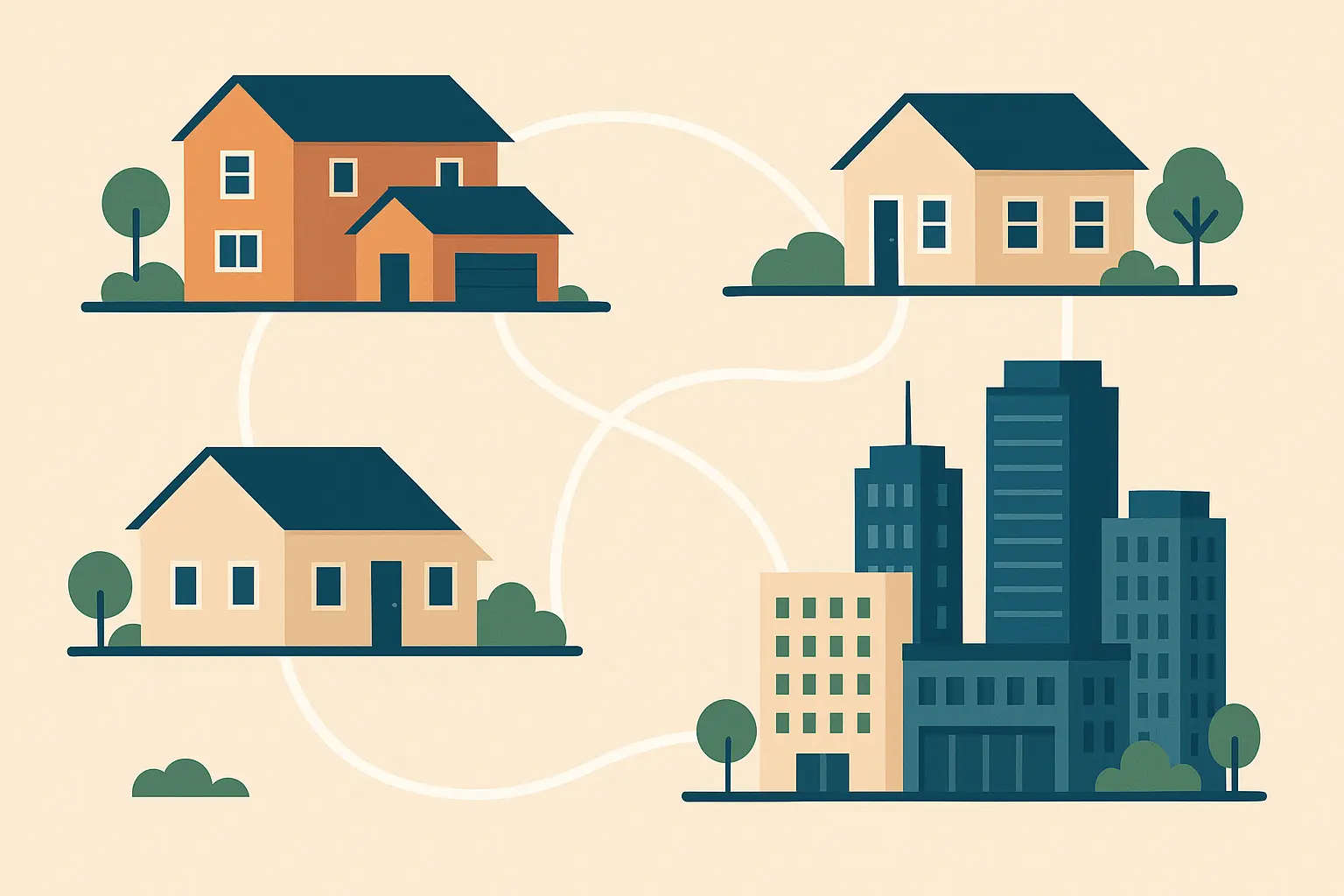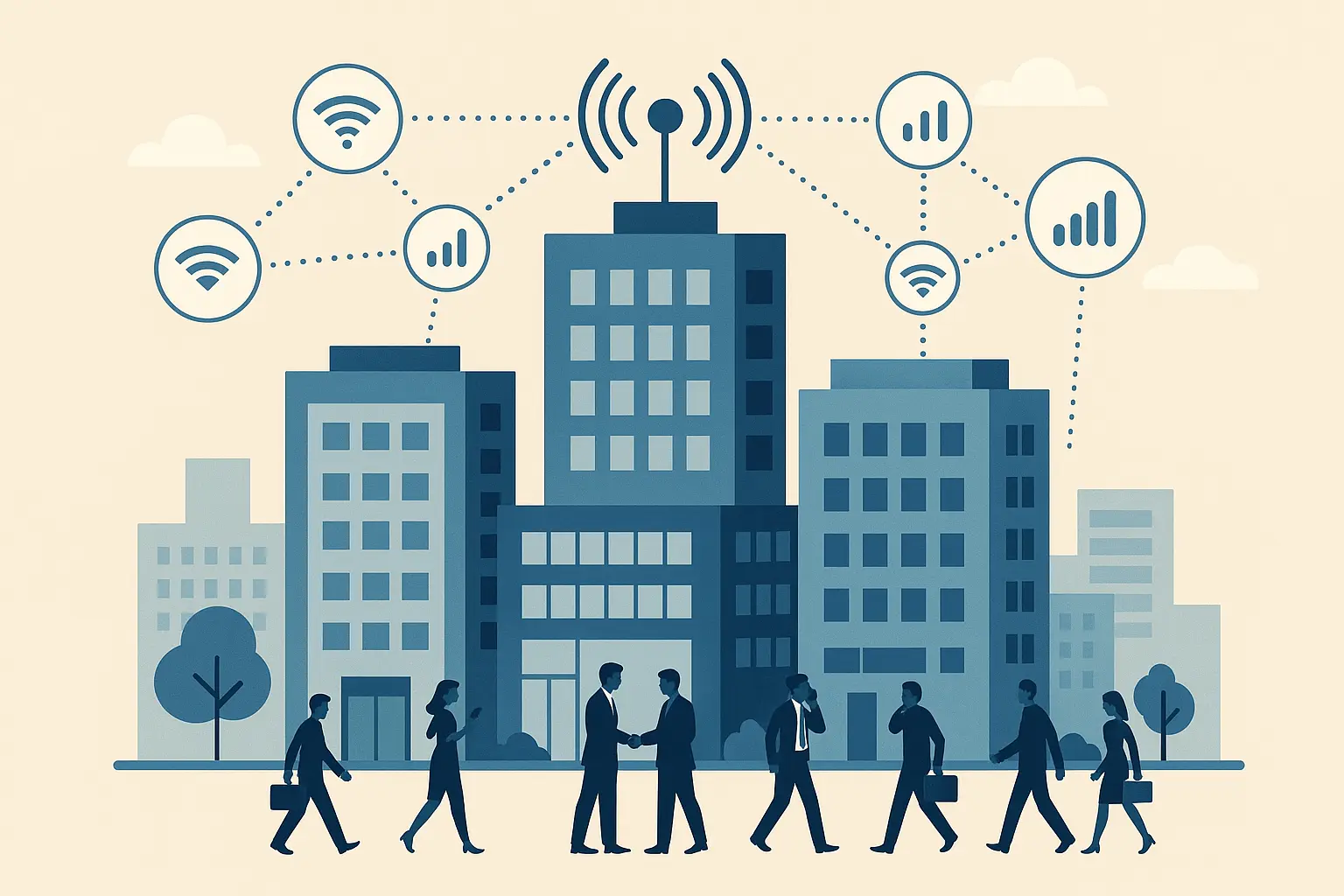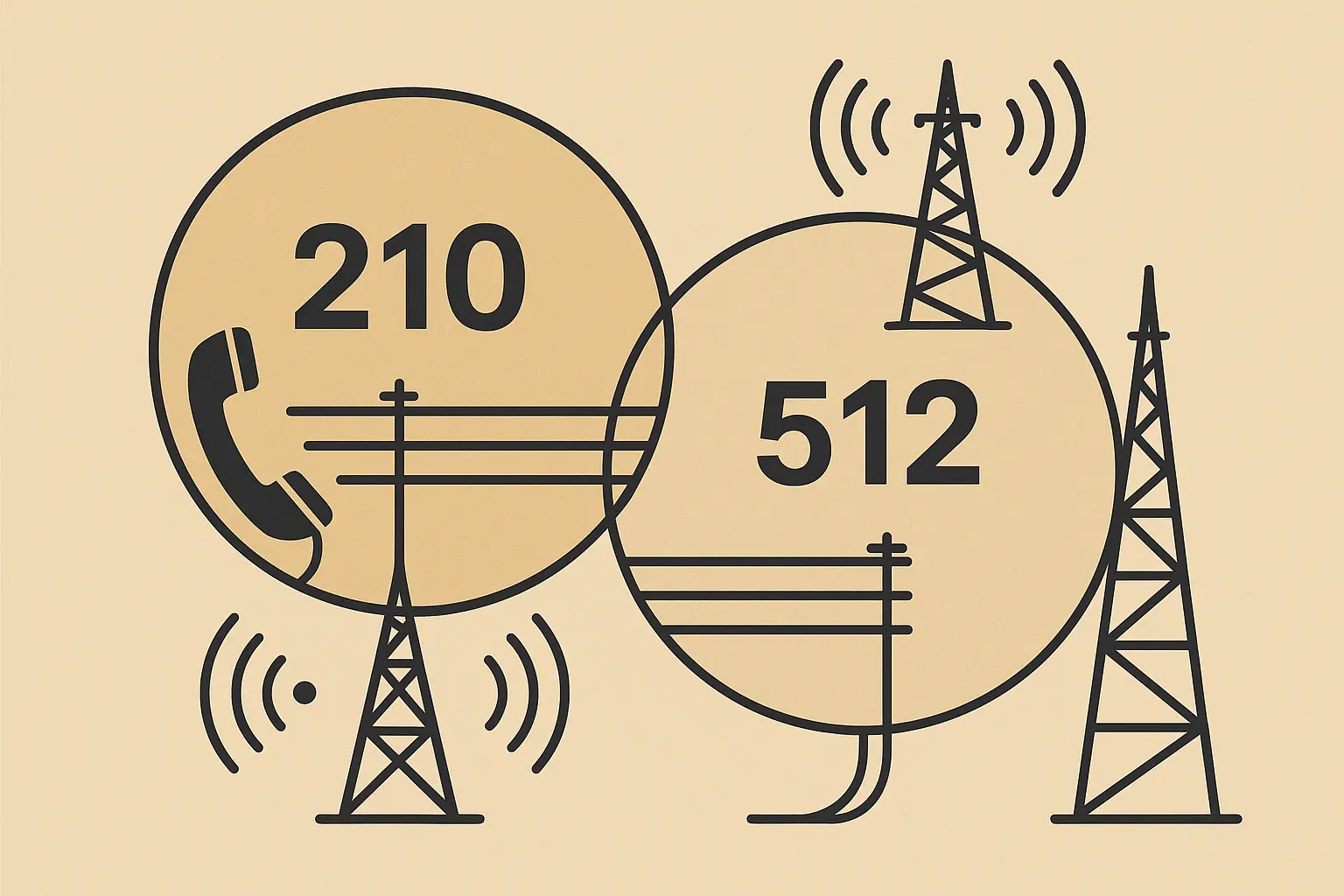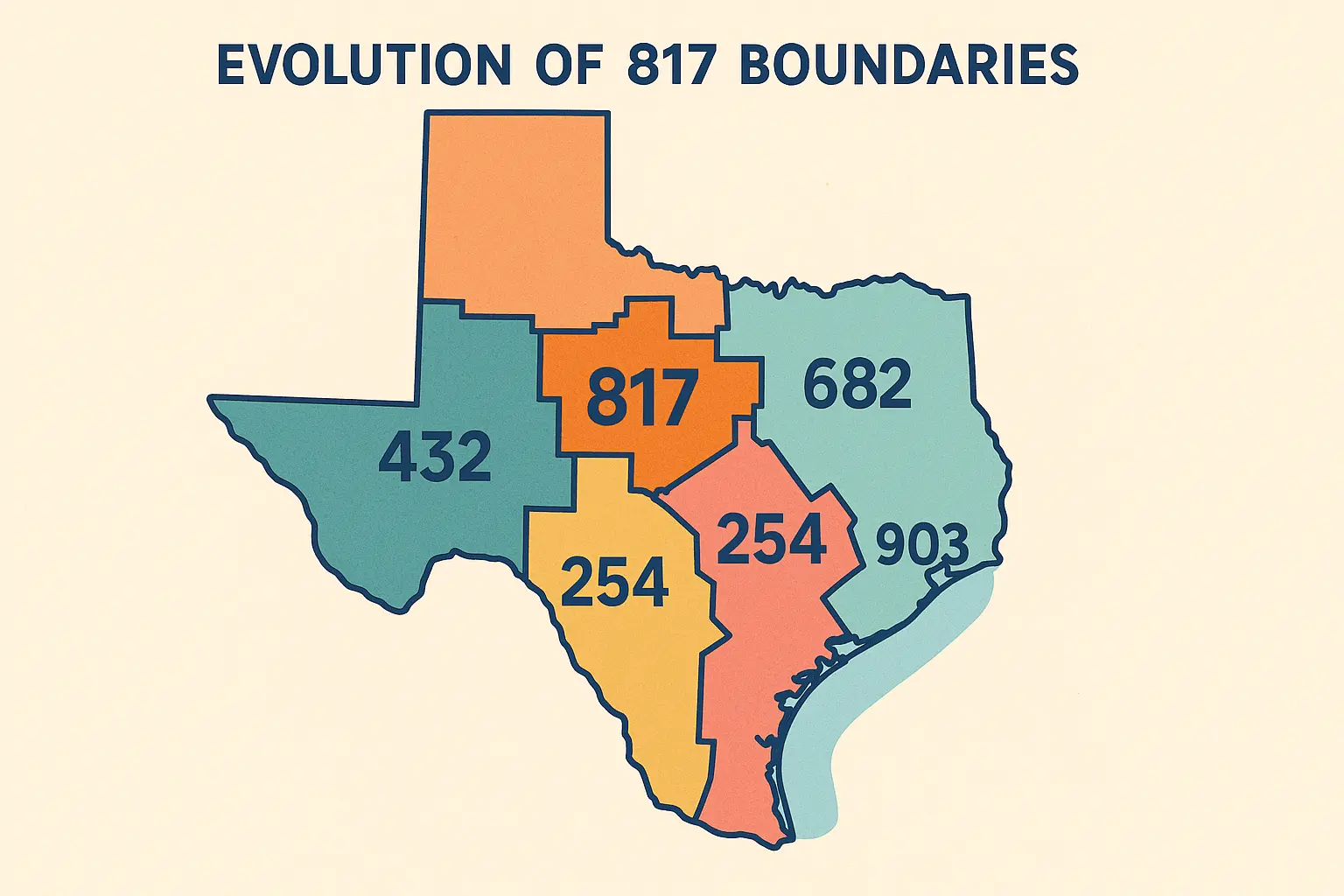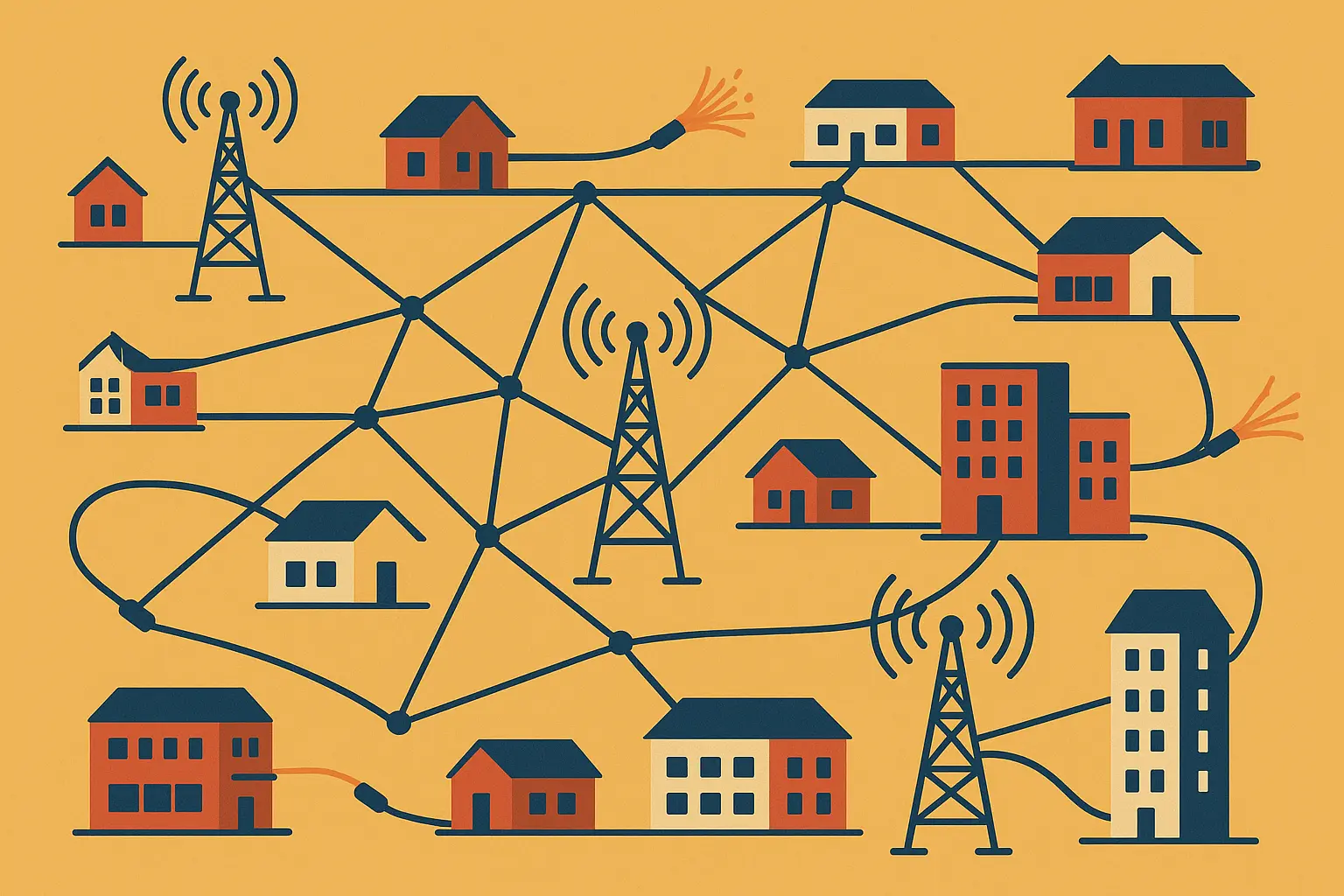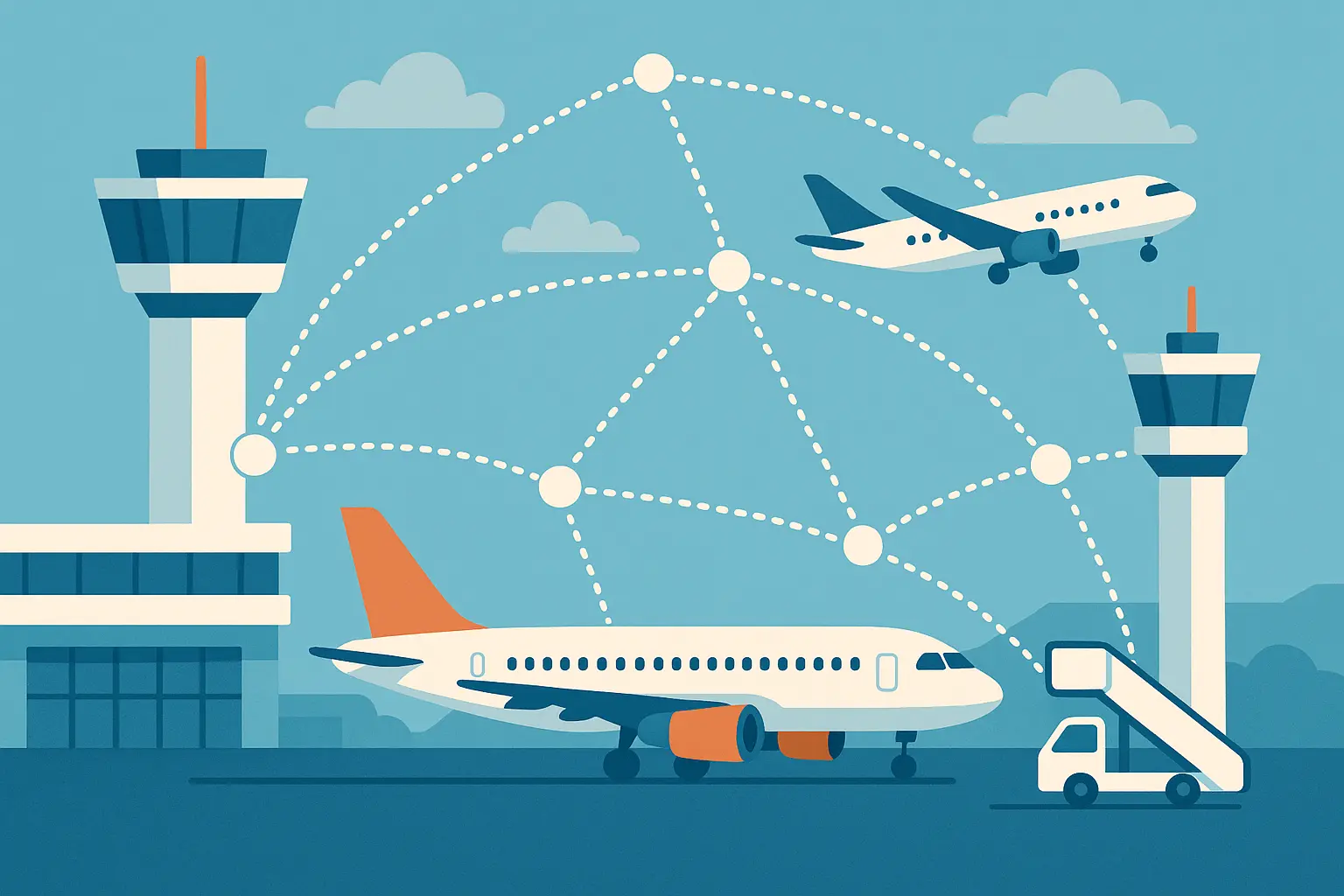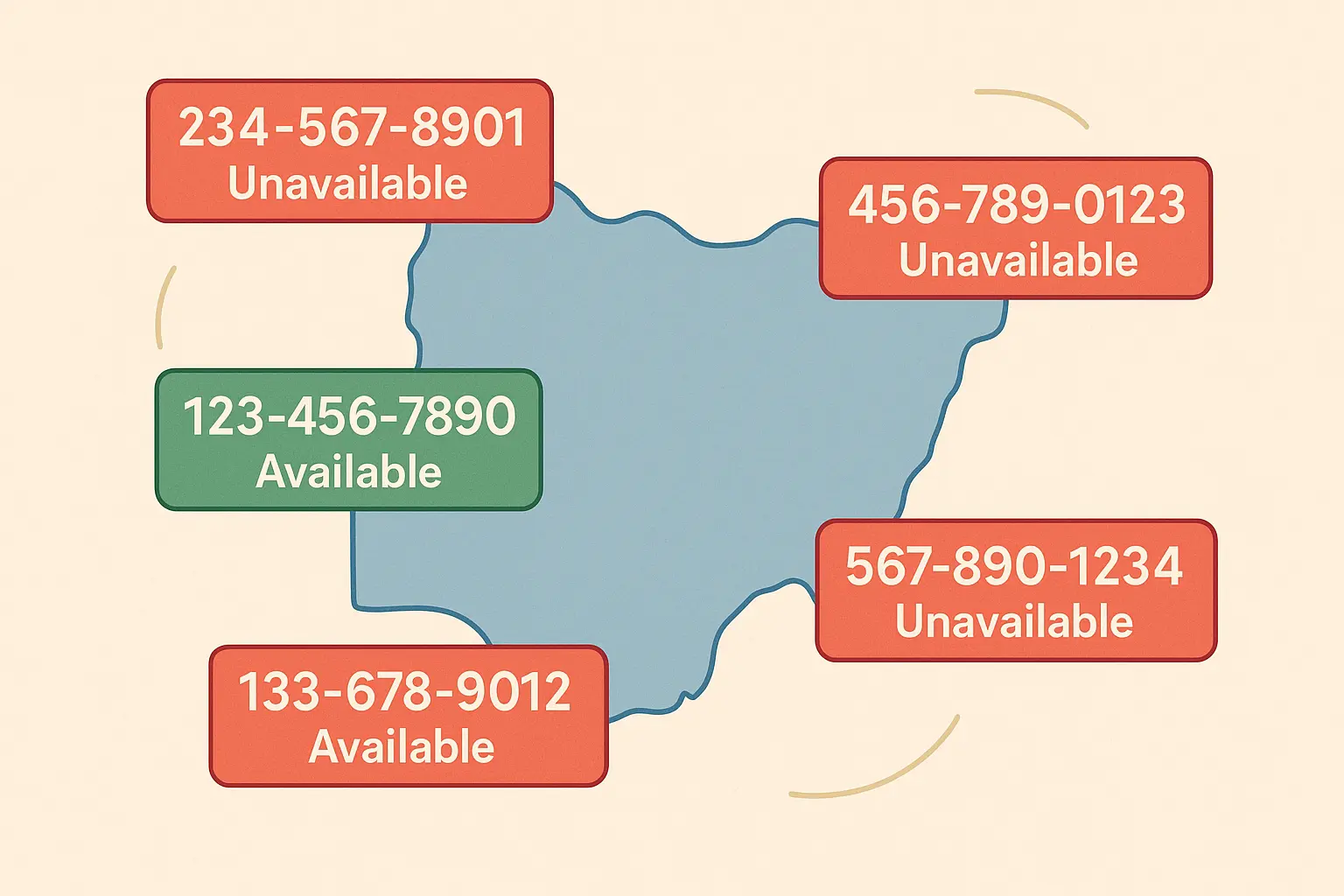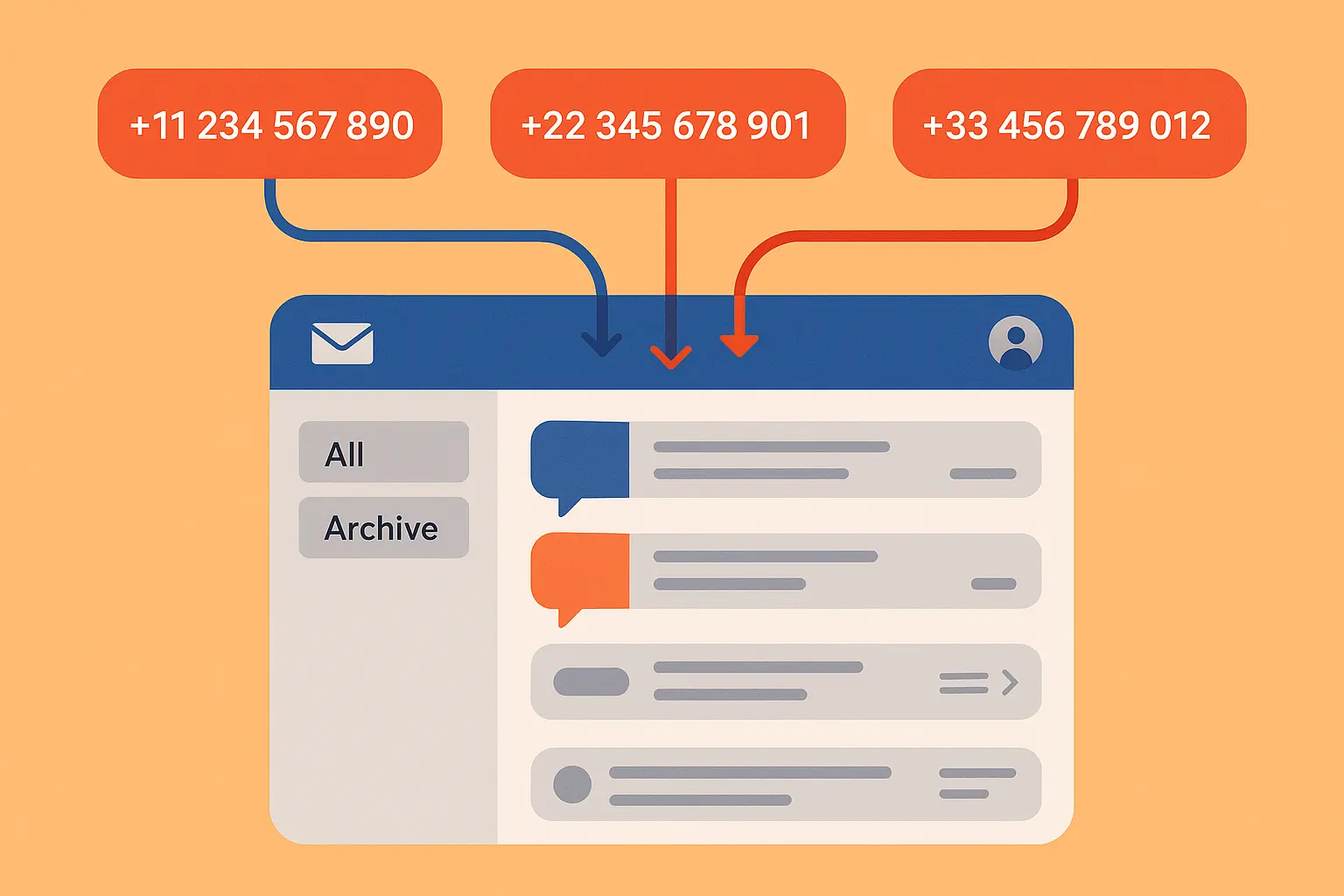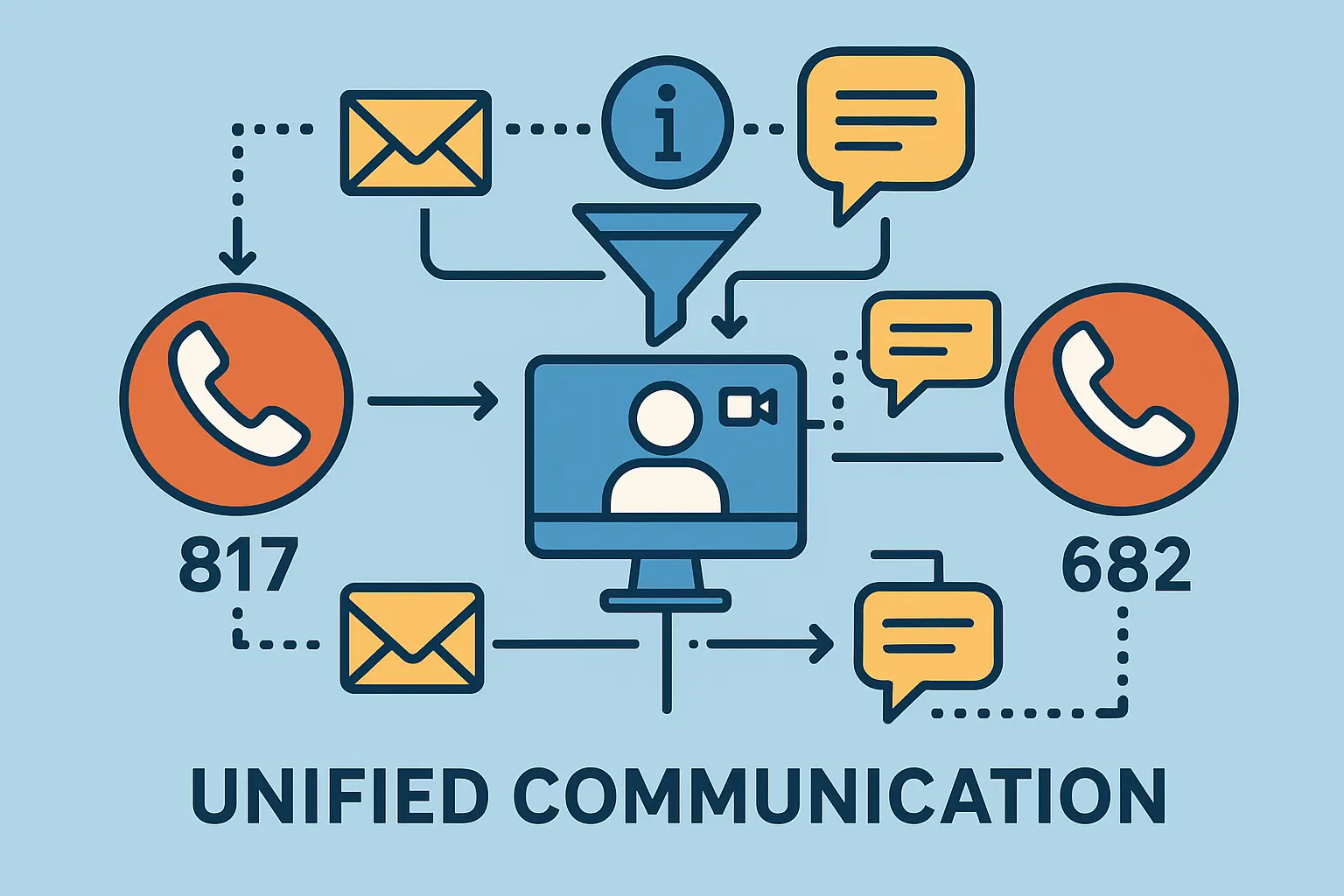Most people think 817 is just Fort Worth’s area code. After helping dozens of businesses navigate North Texas communications for the past decade, I can tell you there’s way more to this story. Whether you’re trying to get a memorable phone number for your business or wondering why you have to dial 10 digits for local calls, here’s what you actually need to know about 817.
With 2,464,037 people served by this area code according to ZipAtlas demographic data, understanding how the 817 system works can save you headaches and help your business communicate better. From the tricky overlay system with 682 to getting the phone numbers you want, I’ll walk you through the practical stuff that matters for your business.
Table of Contents
Table of Contents
-
What Makes the 817 Area Code Special in North Texas
-
The Geographic Footprint You Need to Know About
-
How the 817-682 Overlay System Actually Works
-
The Fascinating History Behind Your Phone Number
-
Why Fort Worth’s Phone Systems Matter
-
Business Powerhouses That Call 817 Home
-
Getting the Phone Numbers You Want (And Why It’s Harder Now)
-
Smart Solutions for Managing Multiple 817 Communications
TL;DR – The Essential 817 Area Code Facts
-
817 covers Fort Worth and surrounding areas, but you’ll also see 682 numbers in the same places
-
You have to dial 10 digits for every call, even local ones
-
The area hosts major companies, making phone numbers competitive
-
817 used to cover way more of Texas before they split it up
-
Good phone infrastructure, but that means everyone wants to be here
-
Getting a specific 817 number is tough and expensive
-
Managing multiple business numbers here requires smart forwarding systems
What Makes the 817 Area Code Special in North Texas
The 817 area code isn’t just three digits – it’s become part of Fort Worth’s identity. I’ve worked with businesses throughout this region, and there’s something unique about how seriously people here take their area code. It represents local pride, business credibility, and connection to one of Texas’s most dynamic economic areas.
Fort Worth’s Role as the Phone Hub
Fort Worth anchors the 817 area code as Texas’s fourth-largest city. The phone systems here support everything from small family businesses to major corporate headquarters. What makes it interesting is how the local community has embraced the 817 identity.
Just recently, the local pride in 817 was on full display when Fox4News reported “North Crowley players wearing ‘817’ on their helmets, a nod to the school’s Fort Worth area code” during their championship run. That kind of regional pride translates directly into business – companies here see their Fort Worth area code as a badge of honor, not just a phone number.
The Suburban Network Beyond Fort Worth
Here’s where it gets interesting – 817 reaches way beyond Fort Worth city limits. You’ll find 817 numbers in affluent suburbs like Arlington, Grapevine, Southlake, and Keller. Each area has its own character, but they all share that 817 connection.
I once worked with a marketing agency that had offices in three different 817 suburbs. They needed text message forwarding solutions because clients would text their Grapevine number expecting to reach their Arlington team. The suburban spread creates communication challenges that urban-only businesses don’t face.
Rural Communities Get 817 Too
Don’t forget about the rural parts of Tarrant County that also use 817. These areas present unique challenges – lower population density but occasional high-demand businesses. A ranch supply company in rural 817 territory might get most of their business through mobile texts and calls, making reliable message forwarding crucial when the owner’s out checking cattle.
The Geographic Footprint You Need to Know About
Knowing exactly where 817 numbers work becomes important when you’re planning business operations or trying to establish local credibility. The boundaries aren’t always obvious, and understanding the coverage helps explain why certain communication strategies work better than others. The 817 area code covers roughly 2,864,817 phone numbers according to Intelius data, with Fort Worth as the anchor city.
Primary Cities and Communities Under 817
The 817 area code covers a diverse mix of places, from Fort Worth’s urban core to smaller suburban communities. Each has its own personality, which creates interesting patterns in how people and businesses use their phone systems.
|
City |
Population Coverage |
What They’re Known For |
Phone Usage |
|---|---|---|---|
|
Fort Worth |
2,154,595 |
Corporate headquarters, aviation |
Heavy business use |
|
Arlington |
400,000+ |
Entertainment, sports venues |
High volume |
|
Grapevine |
55,000+ |
Tourism, hospitality |
Moderate |
|
Southlake |
32,000+ |
Wealthy residential, professional services |
Moderate |
|
Keller |
48,000+ |
Suburban families, small business |
Moderate |
Downtown Fort Worth – Where the Action Is
Downtown Fort Worth and the surrounding urban areas pack the most 817 phone numbers into the smallest space. You’ve got everything from startups to major corporate offices, all competing for memorable numbers.
When I work with businesses downtown, they often need multiple 817 numbers for different departments or customer types. The competition for good numbers is fierce, but the phone infrastructure can handle sophisticated systems that smaller markets can’t support. Last month, I helped a law firm set up separate 817 lines for personal injury, business law, and family law – each with its own forwarding rules.
Suburban Communities – Different Patterns
The suburban areas have different phone usage patterns than downtown. You’ll see more residential numbers mixed with professional services and retail. These communities often prefer local businesses with 817 numbers over companies with out-of-area codes.
A real estate agent in Southlake might manage three different 817 numbers – one for residential sales, one for luxury properties, and one for property management. Without proper message forwarding, they’d spend all day checking voicemail instead of showing houses.
How the 817-682 Overlay System Actually Works
Here’s the deal with 817 and 682: they cover the exact same area. When Fort Worth started running out of phone numbers in 2000, instead of forcing everyone to change their numbers, phone companies just added 682 as a backup. Now you have to dial all 10 digits for every call, even to your neighbor.
Why We Ended Up with Two Area Codes
The simple version: Fort Worth got too popular. By 2000, they were running out of 817 numbers to give out. Rather than make existing businesses change their numbers (imagine the chaos), they created the overlay system. New customers could get either 817 or 682 numbers, depending on what was available.
I remember when this happened – it created massive confusion. Businesses had to retrain staff, update phone systems, and change marketing materials. The companies that planned ahead did fine. The ones caught off guard? Not so much.
The Implementation That Changed Everything
The transition didn’t happen overnight. Phone companies had to carefully manage the rollout to keep existing 817 customers happy while making room for new ones. Here’s what every business had to deal with:
817-682 Overlay Reality Check:
-
Every local call needs 10 digits now
-
Your phone system has to handle both area codes
-
Staff training on proper dialing procedures became mandatory
-
Marketing materials needed updating
-
Call forwarding had to work across both area codes
-
Voicemail systems had to recognize both formats
How You Actually Get a Number
When you ask for a new phone number in the region, you might get 817 or 682 depending on what’s available in your specific area. Phone companies try to accommodate preferences, but availability rules the day.
The reality? Getting a specific 817 number has become much harder since 682 came along. Many businesses prefer the original 817 for branding reasons, but often have to accept 682 alternatives or pay premium prices for specific 817 combinations.
The 10-Digit Dialing Everyone Deals With
Since both 817 and 682 serve the same geographic area, every call requires 10 digits – even calling your next-door neighbor. This ensures the phone system routes calls correctly without confusion.
For businesses managing multiple numbers, understanding proper US phone number formatting becomes essential. I’ve seen companies lose customers simply because their staff wasn’t trained on proper dialing procedures, leading to failed calls and frustrated customers who couldn’t reach them.
The Fascinating History Behind Your Phone Number
The 817 area code has changed dramatically since it started, reflecting Fort Worth’s explosive growth and evolving phone technology. This history explains current numbering patterns and why certain business communication challenges exist today. The Texas 817 area code story is really about rapid economic development and adapting to change.
Original Territory vs. Today’s Boundaries
When 817 first launched, it covered a much bigger chunk of Texas than it does today. The original territory extended way beyond the current Dallas-Fort Worth area, serving communities that now have completely different area codes after various splits and reorganizations over the decades.
This history explains why some businesses still have 817 numbers even though they’re in areas that now use different area codes. These “grandfathered” numbers often become valuable assets for companies wanting to maintain their historical connection to the region.
Major Splits That Reshaped the Region
Several significant area code splits carved away portions of the original 817 territory to create new area codes like 214 and 972. Each split was designed to ensure adequate phone numbers for growing populations while maintaining some geographic logic.
The relationship between these area codes becomes clearer when you examine Dallas’s 214 area code and its historical connection to the broader region. These splits created situations where businesses operating across multiple locations might have numbers from different area codes, requiring sophisticated call management systems.
Population Growth Impact on Phone Systems
The Dallas-Fort Worth area’s rapid expansion created unprecedented demand for phone numbers throughout the late 20th century. This growth pressure directly influenced decisions about area code management and ultimately led to the overlay system we see today.
I’ve worked with several companies that have been in the 817 region since before the major growth boom. Their phone number histories tell fascinating stories about business expansion and technology evolution. Some now manage dozens of 817 numbers across multiple locations, creating complex communication management challenges that didn’t exist when they started with a single line.
Why Fort Worth’s Phone Systems Matter
The phone infrastructure supporting the 817 area code goes way beyond basic phone service. It includes sophisticated networks that enable modern business operations. Understanding this infrastructure helps explain why the region attracts major corporations and supports diverse industries with complex communication needs.
Network Infrastructure That Powers the Region
The 817 area benefits from extensive phone system investments, including fiber optic networks, cellular towers, and traditional systems that provide comprehensive coverage and backup options. This infrastructure supports both basic communication needs and advanced business applications.
Major phone companies have invested heavily here because of the high business density and sophisticated communication requirements. The result is infrastructure that can handle everything from basic voice calls to complex data communications and advanced messaging systems.
Fiber Optic Coverage Across the Territory
Major phone companies have invested heavily in fiber optic infrastructure throughout the 817 region, enabling high-speed internet and advanced communication services that businesses depend on for everything from basic operations to sophisticated customer relationship management systems.
The fiber coverage in 817 territory is among the most comprehensive in Texas, which explains why so many technology companies and corporate headquarters choose to locate here. This infrastructure enables the kind of advanced communication systems that modern businesses require.
Cellular Network Density and Coverage
The high population density in the 817 region has resulted in extensive cellular tower coverage from all major carriers. This density ensures reliable mobile communications across urban and suburban areas, supporting the heavy reliance on mobile devices for both personal and business communications.
I’ve tested cellular coverage throughout the 817 region, and it’s consistently strong even in areas that might be considered rural. This reliability is crucial for businesses that depend on mobile communications for field operations or customer service.
Modern Communication Integration
The 817 area code works seamlessly with modern communication technologies, supporting everything from traditional voice calls to advanced business communication systems. This integration capability makes the region attractive to businesses that need flexible, scalable communication solutions.
Internet Phone Services Availability
Voice over Internet Protocol (V oIP) services are widely available throughout the 817 region, offering businesses and residents flexible, cost-effective communication solutions that integrate with traditional phone systems while providing advanced features like call forwarding, voicemail-to-email, and unified messaging.
The VoIP infrastructure in the 817 area is particularly robust, which enables businesses to implement sophisticated call routing and message management systems. I’ve helped companies transition from traditional phone systems to VoIP solutions that provide much greater flexibility for managing multiple locations and communication channels.
Business Communication Systems Support
The region supports sophisticated business communication infrastructure, including PBX systems, unified communications platforms, and cloud-based communication services that leverage both 817 and 682 numbering resources to provide seamless internal and external communications.
These systems can handle complex routing requirements, such as forwarding calls from multiple 817 numbers to different departments or locations based on time of day, caller ID, or other criteria. The infrastructure reliability in the region makes these advanced systems practical for businesses of all sizes.
Business Powerhouses That Call 817 Home
The 817 area code hosts an impressive collection of major corporations and diverse industries, each with unique phone system requirements. Understanding this business landscape helps explain the sophisticated communication needs that exist throughout the region.
The economic strength shows in the Median Family Income in Area Code 817 of $91,340 according to ZipAtlas economic data, indicating a prosperous business environment that supports advanced phone system needs. This prosperity drives demand for sophisticated communication solutions that can handle complex business requirements.
Major Companies and Employers
Companies like American Airlines, Bell Helicopter, and other major employers have maintained significant operations in the 817 region, driving demand for advanced business communication systems and creating a competitive environment for phone services.
The region’s business pride was recently highlighted when NBC DFW reported “People are just frankly, on this side of the metroplex, they’re just kind of tired of everyone talking about Dallas, you know, and not mentioning Fort Worth when it comes to our athletic programs,” reflecting the competitive business spirit that drives phone system innovation in the 817 area.
Aviation and Aerospace Industry
The significant aviation presence requires specialized communication protocols and message handling systems for safety-critical operations. These companies often need backup communication systems and secure message forwarding capabilities to maintain operational safety and regulatory compliance.
American Airlines headquarters manages multiple 817 numbers for different departments – customer service, operations, maintenance, and executive offices – requiring sophisticated call routing and message management systems that can handle thousands of daily communications while maintaining strict security protocols.
Working with aviation companies in the 817 region has shown me how critical reliable message forwarding becomes when safety is involved. These organizations can’t afford missed communications, so they implement multiple backup systems and automated routing protocols.
Healthcare and Medical Centers
Major medical facilities throughout the 817 area rely heavily on secure, reliable communication systems for patient care coordination. These organizations require message forwarding and archival solutions that meet strict compliance requirements while ensuring critical communications reach the right personnel quickly.
Industry-Specific Communication Challenges
Different industries within the 817 area have unique phone system requirements that create specific challenges for message management and communication coordination. Understanding these industry needs helps explain why generic communication solutions often fall short in this region.
|
Industry |
Communication Challenge |
Solution Requirements |
Typical 817 Usage |
|---|---|---|---|
|
Aviation |
Safety-critical messaging |
Backup systems, instant delivery |
Multiple departmental lines |
|
Healthcare |
HIPAA compliance |
Secure forwarding, audit trails |
Patient care coordination |
|
Energy |
24/7 operations |
Emergency protocols, multi-site routing |
Field operations management |
|
Finance |
Regulatory compliance |
Encrypted messaging, record retention |
Customer service tiers |
Energy Sector Communication Needs
Oil and gas companies operating in the region need reliable message forwarding systems to coordinate field operations and emergency responses across multiple locations. These companies often manage communications across various time zones and require systems that can handle both routine operational messages and urgent safety notifications.
I’ve worked with energy companies that have field operations spread across multiple states but maintain their primary communications hub in the 817 region. Their message management requirements are incredibly complex, involving everything from routine maintenance scheduling to emergency response coordination.
Getting the Phone Numbers You Want (And Why It’s Harder Now)
Want a memorable 817 number for your business? Here’s the reality: you’ll probably pay more and wait longer than you expect. Most of the good ones are taken. The mature nature of the area code and high demand from businesses seeking local presence makes securing desirable 817 phone numbers increasingly challenging.
Number Availability Patterns in the Region
The distribution of 817 phone numbers follows specific patterns that reflect both geographic preferences and availability constraints within the overlay system. Businesses seeking specific number patterns or vanity numbers face increasing competition and limited options.
Vanity Number Competition and Reality
Businesses seeking memorable 817 phone numbers face significant competition due to the mature nature of the area code. Many desirable number combinations have been assigned for years, making strategic number selection more challenging and expensive than in newer area codes.
817 Number Selection Reality Check:
-
Research available prefixes in your target service areas
-
Consider 682 alternatives for better availability
-
Evaluate vanity number options and costs (they’re expensive)
-
Plan for multiple numbers across departments
-
Assess integration requirements with existing systems
-
Review carrier-specific number inventory
Block Assignment Strategies
Phone companies manage 817 number blocks to ensure efficient utilization while maintaining service quality across the region. Understanding how these blocks are assigned can help businesses work with providers to secure numbers that meet their specific needs and preferences.
A growing law firm in Fort Worth might request a block of consecutive 817 numbers (such as 817-555-1200 through 817-555-1210) to maintain consistent branding across different practice areas, but may need to accept 682 alternatives or non-consecutive numbers due to availability constraints in the mature 817 market.
The reality is that getting exactly what you want in terms of 817 phone numbers requires patience, flexibility, and often additional investment. I’ve seen businesses wait months for specific number combinations to become available, while others have paid premium prices to acquire desired numbers from other companies.
Smart Solutions for Managing Multiple 817 Communications
If you’re juggling multiple business phone numbers in the 817 area, you’re not alone. The sophisticated business environment creates perfect conditions for advanced message management solutions. Companies operating in this region often manage multiple phone numbers across both 817 and 682 area codes, creating complexity that requires intelligent forwarding and filtering systems.
Consolidating Messages from Multiple Numbers
Businesses managing multiple 817 phone numbers can benefit significantly from centralized message management systems that consolidate all incoming communications into unified platforms. Auto Forward SMS addresses this challenge by forwarding text messages from various numbers to centralized email systems or integrating them directly with business applications through URL forwarding to platforms including Slack or Microsoft Teams.
For businesses new to message forwarding, getting started with automated SMS forwarding provides essential setup guidance. I’ve helped dozens of 817-area businesses implement these systems, and the efficiency gains are remarkable once everything is properly configured.
Automated Filtering for High-Volume Communications
The service’s keyword filtering capabilities become particularly valuable for 817-area businesses that receive high volumes of text messages. Customer service departments can automatically route messages containing specific terms to appropriate team members, while emergency notifications can be forwarded immediately to on-call personnel – essential automation in the fast-paced business environment that characterizes the Fort Worth metropolitan area.
Advanced users can leverage Slack integration for team communications to streamline workflow management. The 817 area has so many businesses with complex communication needs that these advanced features often become necessities rather than luxuries.
Cross-Area Code Message Management
For businesses operating across both 817 and 682 area codes, Auto Forward SMS’s ability to create specific forwarding rules for different numbers ensures seamless message management regardless of which area code customers use to contact them. The conversation archival feature also supports compliance requirements common in the region’s heavily regulated industries including healthcare, finance, and aviation, while multi-language support aligns perfectly with the diverse demographics of the 817 area code region.
Final Thoughts
Look, the 817 area code isn’t going anywhere, but it’s getting more complicated to manage. Whether you’re a small business trying to look local or a bigger company juggling multiple locations, the key is keeping your communication simple for customers while making it manageable for you.
The 817 area code represents much more than just phone number digits – it’s the communication foundation for one of Texas’s most dynamic economic regions. From Fort Worth’s corporate headquarters to suburban business districts and rural communities, the area code serves diverse communication needs that continue to evolve with technology and business requirements.
Understanding the overlay system with 682, the historical development, and the solid infrastructure helps explain why effective message management becomes crucial for businesses operating in this competitive environment. Whether you’re managing customer communications across multiple numbers or trying to streamline operations in the region’s fast-paced business landscape, the right communication tools can make the difference between missed opportunities and successful customer relationships.
The businesses I work with in the 817 region consistently tell me that their communication challenges are more complex than what they faced in other markets. The combination of high business density, sophisticated customer expectations, and regulatory requirements creates an environment where advanced message management isn’t optional – it’s essential for success.
For businesses looking to optimize their communication systems across the 817 region, exploring API integration options can provide the flexibility needed to handle complex multi-location operations effectively. The investment in proper communication infrastructure pays dividends in customer satisfaction and operational efficiency.


